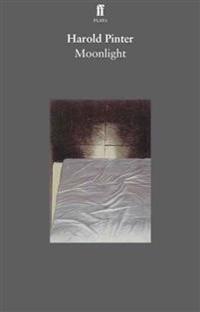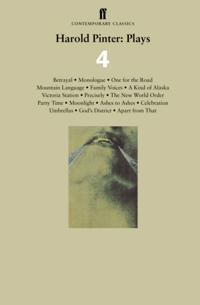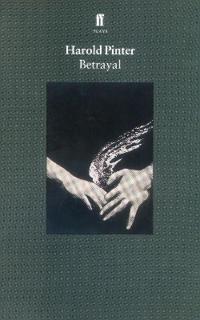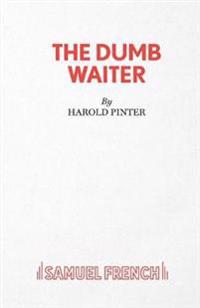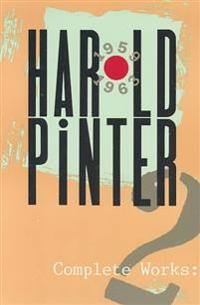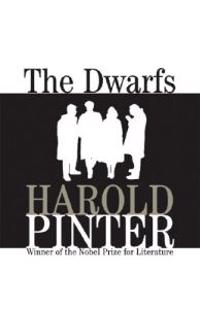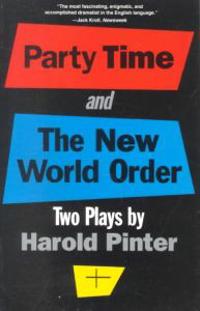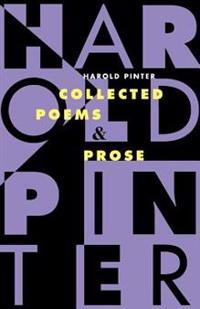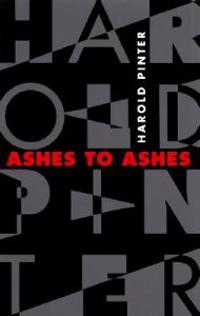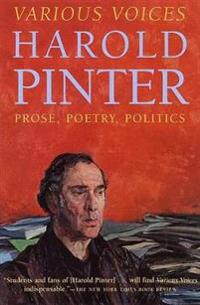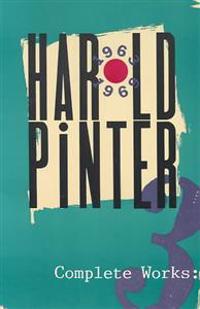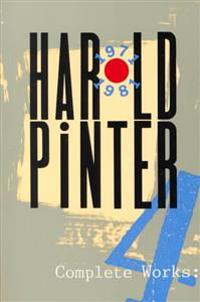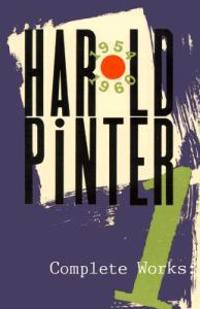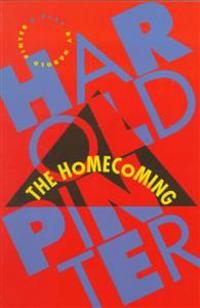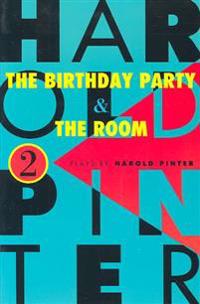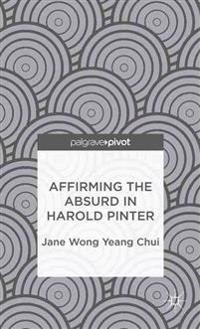Harold Pinter (häftad)
ISBN: 9780571234769 - UTGIVEN: 2007-04Harold Pinter has acted on stage, screen and radio, he has appeared on countless political platforms, and his work has been celebrated in festivals at Dublin's Gate Theatre and New York's Lincoln Center. In 2005, he was awarded the Nobel Prize for Literature and in 2006, the European Theatre Prize.[...]
Moonlight (Häftad)
avHarold Pinter
ISBN: 9780571276608 - UTGIVEN: 201104A dark, elegiac play of the gulf between parents and children and the anguish of approaching death...[...]
Betrayal (Häftad)
avHarold Pinter
ISBN: 9780571305483 - UTGIVEN: 201303Features narrative method that takes "what's next?" out of the spectator's and replaces it with the rather deeper "how?" and "why?" Why did love pass? How did these people cope with the lies, the evasions, the sudden dangers, panic and the contradictory feelings behind their own deftly engineered ma[...]
The Short Plays of Harold Pinter (häftad)
ISBN: 9780571349913 - UTGIVEN: 2019-08This volume contains the complete short plays of Harold Pinter from The Room, first performed in 1960, to Celebration, which premiered in 2000. The book commemorates the tenth anniversary of the playwright's death and coincides with Pinter at the Pinter, a celebratory season staging twenty of his on[...]
Complete Works (Pocket)
avHarold Pinter
ISBN: 9780802132376 - UTGIVEN: 199011Complete Works: Two (1959-1963), Vol. 2
Along with Samuel Beckett and Eugene Ionesco, Harold Pinter holds an undisputed place in the front ranks of contemporary dramatists. In volume two of his collected works, the plays and revue sketches mark a period of transition, as Pinter's c[...]Dwarfs (Pocket)
avHarold Pinter
ISBN: 9780802132666 - UTGIVEN: 1991-11Follows the evolving friendship of Len, an amateur mathematician who works at the Euston train station, Mark, an actor, and Virginia and Pete, a young couple struggling to define their relationship. Reissue.[...]
Party Time and the New World Order (Pocket)
avHarold Pinter
ISBN: 9780802133526 - UTGIVEN: 1993-10Two plays by the Nobel Prize-winning author explore class, privilege, dissent, poverty, and democracy.[...]
Ashes to Ashes (Pocket)
avHarold Pinter
ISBN: 9780802135100 - UTGIVEN: 1997-04First presented by the Royal Court Theatre in London in September of 1996, Ashes to Ashes is a triumph of power and concision. In the living room of a pleasant house in a university town outside of London, Devlin, threatened by his wife Rebecca's recollections of an abusive ex-lover, questions her r[...]
Various Voices: Prose, Poetry, Politics; 1948-1998 (Häftad)
avHarold Pinter
ISBN: 9780802138248 - UTGIVEN: 200106Harold Pinter's plays include The Birthday Party, The Homecoming, and The Caretaker. They have become seminal works in our literary canon. Pinter has always been reluctant to comment on his work, preferring to let his writing speak for itself. Now, for the first time, Pinter presents his own selecti[...]
Old Times (Pocket)
avHarold Pinter
ISBN: 9780802150295 - UTGIVEN: 197201A middle-aged couple entertain a friend they have not seen for two decades in Pinter's play first presented in London's West End in June, 1971[...]
Complete Works (Häftad)
avHarold Pinter
ISBN: 9780802150493 - UTGIVEN: 199401Complete Works: Three (1963-1969), Vol. 3
This is the third volume of the collected works of Harold Pinter, who is regarded by many as the foremost playwright in the English language today. Featured are The Homecoming, one of Pinter's best-known works, along with three other plays, s[...]Complete Works (Pocket)
avHarold Pinter
ISBN: 9780802150509 - UTGIVEN: 199011Complete Works: Four (1971-1981), Vol. 4
Dramatist, scriptwriter, short story writer, novelist, poet, director, and actor, Harold Pinter has earned universal praise for his distinctive style and imagination. In this, the most recent of four volumes, Pinter's work echoes many of his e[...]The Caretaker / the Dumb Waiter (Häftad)
avHarold Pinter
ISBN: 9780802150875 - UTGIVEN: 1994-01In all of Pinter's plays, seemingly ordinary events become charged with profound, if elusive, meaning, haunting pathos, and wild comedy. In The Caretaker, a tramp finds lodging in the derelict house of two brothers; in The Dumb Waiter, a pair of gunmen wait for the kill in a decayed lodging house. H[...]
Complete Works (Pocket)
avHarold Pinter
ISBN: 9780802150967 - UTGIVEN: 199011Complete Works: One (1954-1960), Vol. 1
Harold Pinter has long been acknowledged as one of the most influential playwrights in contemporary theatre; his arresting and original works have left a lasting imprint on the development of the stage and screen while delighting audiences ar[...]The Homecoming (Pocket)
avHarold Pinter
ISBN: 9780802151056 - UTGIVEN: 196606In an old and slightly seedy house in North London there lives a family of men: Max, the aging but still aggressive patriarch; his younger, ineffectual brother Sam; and two of Max's three sons, neither of whom is married -- Lenny, a small-time pimp, and Joey, who dreams of success as a boxer. Into t[...]
The Birthday Party, and the Room (Häftad)
avHarold Pinter
ISBN: 9780802151148 - UTGIVEN: 199401In The Birthday Party, a musician who escapes to a dilapidated boarding house becomes the victim of a ritual murder in which everyone- assassins, victim, and observers- implacably plays out the role assigned him by fate.The Room, a derelict boarding house again becomes the scene of a visitation of f[...]
Affirming the Absurd in Harold Pinter (Inbunden)
avJane Wong Yeang Chui
ISBN: 9781137345349 - UTGIVEN: 2013-05While the Absurd is frequently used to analyze Harold Pinter's work, some aspects have been long overlooked in Pinter criticism - contemplation and affirmation. Many scholars note the menacing, dark, and sinister qualities of Pinter's works, however there is a lack of alternative interpretations and[...]
A Study Guide for Harold Pinter's the Birthday Party (häftad)
ISBN: 9781375389884 - UTGIVEN: 2017-07


